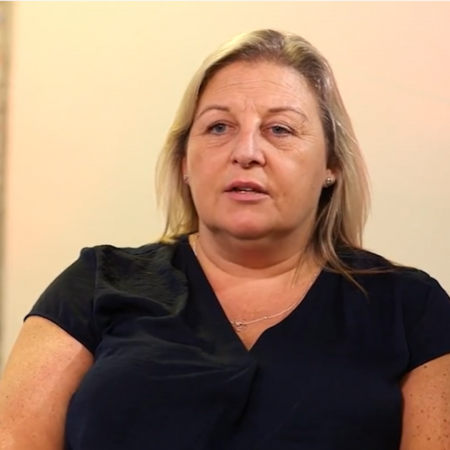| Any advice given and opinions expressed in this article are those of the author and do not necessarily reflect the views of Chiesi Limited. All content in this article is for informational and educational purposes only. |
Reducing the carbon footprint of respiratory care
Back in 2018, the World Health Organization (WHO) reported that avoidable environmental risk factors cause at least 13 million deaths every year, and about a quarter of the global burden of disease.1 And this is just the environmental risk factors we’re currently aware of.1
Air pollution is one of these risk factors, and alone it causes about 6.5 million deaths a year – that’s one in every eight deaths, making it one of the top global risks to health.1
It comes as no surprise that healthcare professionals (HCPs) may be interested to learn how they can address environmental concerns within respiratory health. Beyond rising air pollution only, climate change has been acknowledged as the greatest threat to global public health.2 In the UK, it’s predicted that the number of heat-related deaths could double by the 2050s.3
Air pollution is one of these risk factors, and alone it causes about 6.5 million deaths a year – that’s one in every eight deaths, making it one of the top global risks to health.1
It comes as no surprise that healthcare professionals (HCPs) may be interested to learn how they can address environmental concerns within respiratory health. Beyond rising air pollution only, climate change has been acknowledged as the greatest threat to global public health.2 In the UK, it’s predicted that the number of heat-related deaths could double by the 2050s.3
Thankfully, action is being taken in the UK. The NHS has an ambitious plan to become net zero by 2040, and for emissions across its supply chain to reach the same goal by 2045.4 The NHS is the first national health system in the world to make such a commitment and making medicines and the supply chain more sustainable will be an essential component for meeting the 2045 target in particular.4,5 The NHS’ 2019 Long Term Plan also identified the prescribing of lower carbon inhalers as a way to reduce the NHS carbon footprint, and this goal has already been supported by pharmaceutical companies – with some committing to introduce low carbon propellants.6,7
But it’s not just about changing the inhaler device; more can be done to reduce carbon emissions across the whole pathway of care, and finding ways to make respiratory care more sustainable as a whole is key.
Ultimately, we must remember that meeting the NHS’ sustainability goals requires all HCPs to do our bit and implement sustainable practices in every area of our work.
Encouragingly, as a respiratory pharmacist, I’ve seen directly just how much commitment there is across the pharmacy profession to make respiratory care greener. Many pharmacists are keen to know how they can implement changes practically, without compromising patient care. It’s here that a patient-centric approach to sustainability is key, and why it’s my belief that the greenest respiratory care puts patients’ clinical needs and choice at the core of the decision-making process.
Balancing patient needs and climate action
As highlighted in the NHS Long Term Plan, there have been many commitments made to improving sustainability in healthcare6 – but translating these into clear actions for HCPs can be difficult. There is a pressing need to set out practical steps for pharmacists to take, together with the direct impact these actions will have on making respiratory healthcare greener.
Yet, at the core of this requirement for change is a need for balance, weighing up the needs of the environment against the needs of patients. Pharmacists must put patients at the forefront of decision-making processes, supporting them in using the medicines that best meet their needs so they can gain the best possible outcomes from them.8 This can include:
- helping people understand how often to use and manage their short-acting beta-2 agonists (SABAS), commonly known as ‘reliever medications’, prescribed for quick relief of asthma symptoms9
- educating patients on the importance of adhering to preventer inhalers, including inhaled corticosteroids, an established controller of asthma10
- acknowledging that no one device suits all patients,8 and the ‘greenest’ inhaler is the one that the patient can use correctly and gain maximum benefit from11, 12
- educating patients on the importance of inhaler technique for their specific inhaler.
Understanding inhaler recycling
Taking tangible steps towards sustainable respiratory care requires not just knowledge of what patients need, but what they want.
There is growing public awareness of environmental concerns, with a 2021 survey of 4,000 adults, suggesting that over half of the UK public felt the COVID-19 pandemic alone made them more environmentally conscious.13 As a result, many people are keen to make changes to lower their carbon footprint, and I’ve seen first-hand patients asking about options for how they dispose of their medicines and devices.
It’s particularly telling that over three-quarters of asthma patients, out of 487 asked, agreed to an extent, that they would recycle their used inhalers on a more regular basis, if they could just post them to a recycling centre.14
With an increase in people keen to ‘do their bit’ for the environment, pharmacists will play a central role in providing the means to do so. At the same time, they must ensure all appropriate options for devices are discussed with patients, so they can use the device correctly to gain control of their symptoms.
With approximately 73 million inhalers used in the UK every year, ensuring inhalers are disposed of responsibly is also vital, especially as a recent survey of 487 people with asthma discovered that half were at least somewhat worried about the carbon footprint of their inhalers and felt guilty about not recycling them.14,15 Here is where pharmacists can also play a pivotal role in helping, by:
- encouraging people to dispose of their inhalers through the most appropriate route
- providing information to patients about the return of unwanted inhalers back to pharmacies
- recommending inhaler recycling schemes where available.
Our approach to sustainability might surprise you.
Helping pharmacists make respiratory care greener
With the need – and patient desire – to make respiratory care more environmentally friendly, pharmacists may be wondering what practical steps they can take towards making this a reality. The pointers below should come in useful for pharmacists who are keen to support the changes needed to achieve sustainable respiratory care:
Educating the public on air pollution and overall respiratory health
Pharmacists’ conversations with patients shouldn’t just centre around specific medications and devices, but their wider respiratory health and wellbeing. This may include:
- discussing smoking cessation for the individual
- minimising exposure to indoor and outdoor pollutants
- the importance of regular exercise.
Implementing medicines optimisation
Ultimately, the most environmentally sustainable asthma patient, is one who is well controlled so ensuring people are prescribed medicines that best suit their needs, and that they can use effectively, is key.15 This can include:
- optimising medicines for the individual patient’s needs and with consideration of the latest guidelines
- supporting patients to adhere to their medicine regimens
- checking inhaler technique at every opportunity and sharing self-management guidance to help patients improve symptom control and reduce respiratory exacerbations.
Exploring local inhaler recycling schemes
Initiatives that challenge how patients think about waste are key to delivering real change, for example:
- encouraging other pharmacists to have conversations with patients about how they can dispose of their inhalers in a way that’s kinder to the environment
- raising awareness about schemes such as Take AIR (Action for Inhaler Recycling), the first-of-its-kind postal inhaler scheme that involved pharmacists encouraging patients to adopt a different way of disposing of inhalers in Leicestershire*17
- suggesting pharmacists explore and engage in discussions about setting up inhaler recycling schemes within their localities.
There are also ways pharmacists can introduce sustainable practices more generally, including:
Striving towards zero waste
This might include:
- seeking out and purchasing product lines with less packaging
- considering reintroducing glass bottles for medication rather than plastic boxes and containers
- sharing patient information leaflets electronically.
*This was a Chiesi Limited scheme supported by University Hospitals of Leicester NHS Trust and Leicestershire and Rutland Local Pharmaceutical Committee (LPC)
Making the most of educational and training support
There are several educational resources offered by some pharmaceutical companies for pharmacists and HCPs within the NHS to support their drive towards sustainability.18 For respiratory care specifically, further guidance can also be found via national organisations such as the British Thoracic Society and the Primary Care Respiratory Society (PCRS).19,20
In a world where there is positive social pressure to make more sustainable choices, it can be difficult to know the steps required to truly make a difference without unintended consequences. Pharmacists can take meaningful and much needed strides towards making respiratory healthcare greener by capitalising on the help available to them, educating patients on respiratory and environmental wellbeing, and helping them select the device that they can get optimal benefit from.









